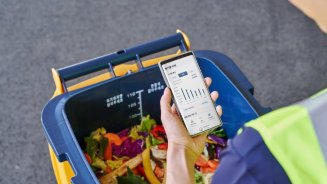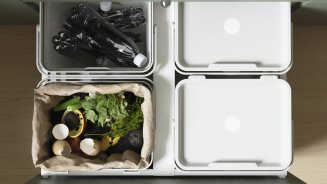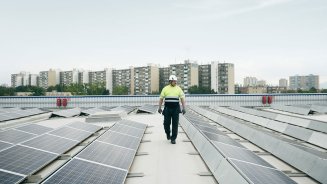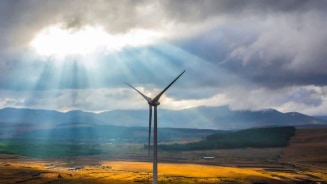- IKEA global study of over 33,000 people across 30 countries finds 66% take some climate action in their daily lives (up from 64% in 2021).
- Cost is now the top barrier for taking action, along with a lack of government support.
- 41% say knowing the impact of climate actions would motivate them to do more.
- But study finds individuals who believe their actions can help address climate change has fallen to 76% in 2023 from 81% in 2021, with a bigger decline among Gen Z.
“The climate crisis can only be solved if we act with urgency and work together across businesses, governments, and society. And this new research sends a strong signal that customers expect us to act. Two out of three people want governments and businesses to take significant action to reduce climate change“
– Karen Pflug, Chief Sustainability Officer, Ingka Group
People are increasingly taking climate related actions in their daily lives, especially if it helps them save money, according to a new People & Planet Consumer Insights & Trends study published by Ingka Group, the largest IKEA retailer*.
The study of over 33,000 people across 30 countries also shows that 66% take action in their daily lives that helps address climate change. However, the number who agree their actions can have an impact has fallen from 81% in 2021 to 76% in 2023. Gen Z (those aged 18-24) are feeling least hopeful, with the number who agree their actions can have an impact falling from 81% in 2021 to 73% in 2023 – the biggest drop of any group.
The study by Ingka Group together with GlobeScan*, builds on three previous studies done in 2017, 2019, and 2021 and was conducted to learn more about how people think, feel and act in relation to people and planet, and what they are doing to address issues around inequality and climate change in their daily lives.
The current global context, which has been dominated by worries of cost of living is having a significant impact. Money-saving climate actions have increased due to necessity, with 50% using smart technology to save/monitor energy use (up from 46% in 2021), 90% saving on heating and cooling (up from 88% in 2021) and 52% of people buying second-hand household items at least some of the time, (up from 48% in 2021).
“We can clearly see from the new insights that saving money is driving more sustainable behaviour. However, we also see that people want to increase their climate action and are looking for greater support in order to make impactful changes. Sustainability needs to become affordable and accessible for the many, not the few. With our size and reach we are working hard to scale affordable solutions that enable our customers to take climate action in their daily lives. Making plant-based food and energy efficient products affordable are two ways we are supporting our customers on the journey”, says Karen Pflug, Chief Sustainability Officer, Ingka Group.
“The climate crisis can only be solved if we act with urgency and work together across businesses, governments, and society. And this new research sends a strong signal that customers expect us to act. Two out of three people want governments and businesses to take significant action to reduce climate change. To increase climate action, we as businesses must continue to tackle emissions across our operations and enable our customers to do the same, whilst pushing for legislation and incentives from governments around the world,” she says.
The insights show that many people want help with prioritising actions that would have the most impact, with 36% saying they would take more action if they had more information and advice on what to do, and 41% saying that knowing the impact of their actions would motivate them to do more.
“One of the insights that stands out in this 4th wave of our study with Ingka Group is the gap in public knowledge about what to do and which actions are most impactful. Of the top six household actions that people take regularly, only two are in the top six for real impact – avoiding food waste and saving on heating and cooling. People need help from government and business with prioritising the most impactful actions. Sharing guidance on what to do, how, and the positive impact it will have on the planet is key,” says Caroline Holme, Senior Director, GlobeScan.
By signposting responsible purchase choices, clearly labeling more sustainable products and communicating benefits, Ingka Group has an opportunity to inspire and enable the billions of people it reaches to take more action in their own lives. In 2021 IKEA Retail stores implemented Sustainable Living Shops, a dedicated space in the store that focuses on highlighting accessible and affordable products and solutions among the existing IKEA range that can support people to take small steps and reduce their climate impact.
Through its IKEA Retail stores it also offers customers a number of services and solutions for a more sustainable life at home. These include buy back and take back services, in-store circular hubs, online platforms for second-hand products, introducing a more plant-based food offer, and expanding Energy Services to more countries, so many more people can use or generate their own clean energy.
As in previous research studies, the new insights will also continue to inform the Ingka Group People & Planet Positive strategy, supporting its sustainability ambitions in 31 Ingka countries, as the company works towards its 2030 commitments. And as global business leaders and government representatives now gather for COP28, Ingka Group will amplify the findings from this study, brining in the voices of the many people, to advocate the private sector and governments to accelerate climate action.
To read more insights please visit Ingka.com or read the infographic summary.
Notes to Editors – Summary of key insights from the report include:
People are worried about climate change and inequality Even in the context of geopolitical and economic instability across the world, many people are still very concerned about climate change and inequality. 68% worry a lot/fair amount about climate change while 62% worry a lot/fair amount about inequality with 64% taking action in their daily lives on inequality (up from 56% in 2021). Over 3 in 4 (76%) believe each individual can help reduce inequality. Generation Z are the most worried and most knowledgeable about both topics.
People are taking more climate action if it saves them money, but cost is a barrier if taking climate action is more expensive The cost-of-living crisis is impacting people’s attitudes and choices with saving money a top motivator for taking climate action. 48% say they don’t do more to reduce climate change because it is too expensive. A wide range of individual climate actions have increased – from saving on cooling and heating (90%), to using smart technology to monitor energy use (50%), to buying second-hand household items and clothes (52%).
People want to take more action, but lack of government and business support is a key barrier 83% of people are willing to take more action. 2/3 of people want governments (65%) and businesses (66%) to take significant action between now and 2030 to reduce climate change.
People are taking more climate action but are not prioritizing the actions with the most impact 66% take some personal action on the environment (increase since 2021) with nearly 4 in 5 (76%) believing each individual can help address climate change. 41% say knowing what will have the most impact will encourage them to do more to help reduce climate change
Read more about Ingka Group’s sustainability performance and commitments in the Annual & Sustainability Summary report.
*This survey was conducted in partnership between Ingka Group and GlobeScan, a global insights and strategy consultancy, in April and May 2023. This research was conducted online using reputable national consumer research panels to recruit respondents in 30 countries. The total sample size across the 30 countries was 33,451 adults (aged 18+). The 30 countries surveyed are: Australia, Austria, Belgium, Canada, China, Croatia, Czech Republic, Denmark, Finland, France, Germany, Hungary, India, Ireland, Italy, Japan, the Netherlands, Norway, Poland, Portugal, Romania, Serbia, Slovakia, Slovenia, South Korea, Spain, Sweden, Switzerland, the UK, and the USA.
About Ingka Group:
With IKEA retail operations on 31 markets, Ingka Group is the largest IKEA retailer and represents about 90% of IKEA retail sales. It is a strategic partner to develop and innovate the IKEA business and help define common IKEA strategies. Ingka Group owns and operates IKEA sales channels under franchise agreements with Inter IKEA Systems B.V. It has three business areas: IKEA Retail, Ingka Investments and Ingka Centres. Read more on www.Ingka.com.
Media enquiries
For further information, journalists and media professionals can contact us at [email protected] or by calling +46 70 993 6376.














